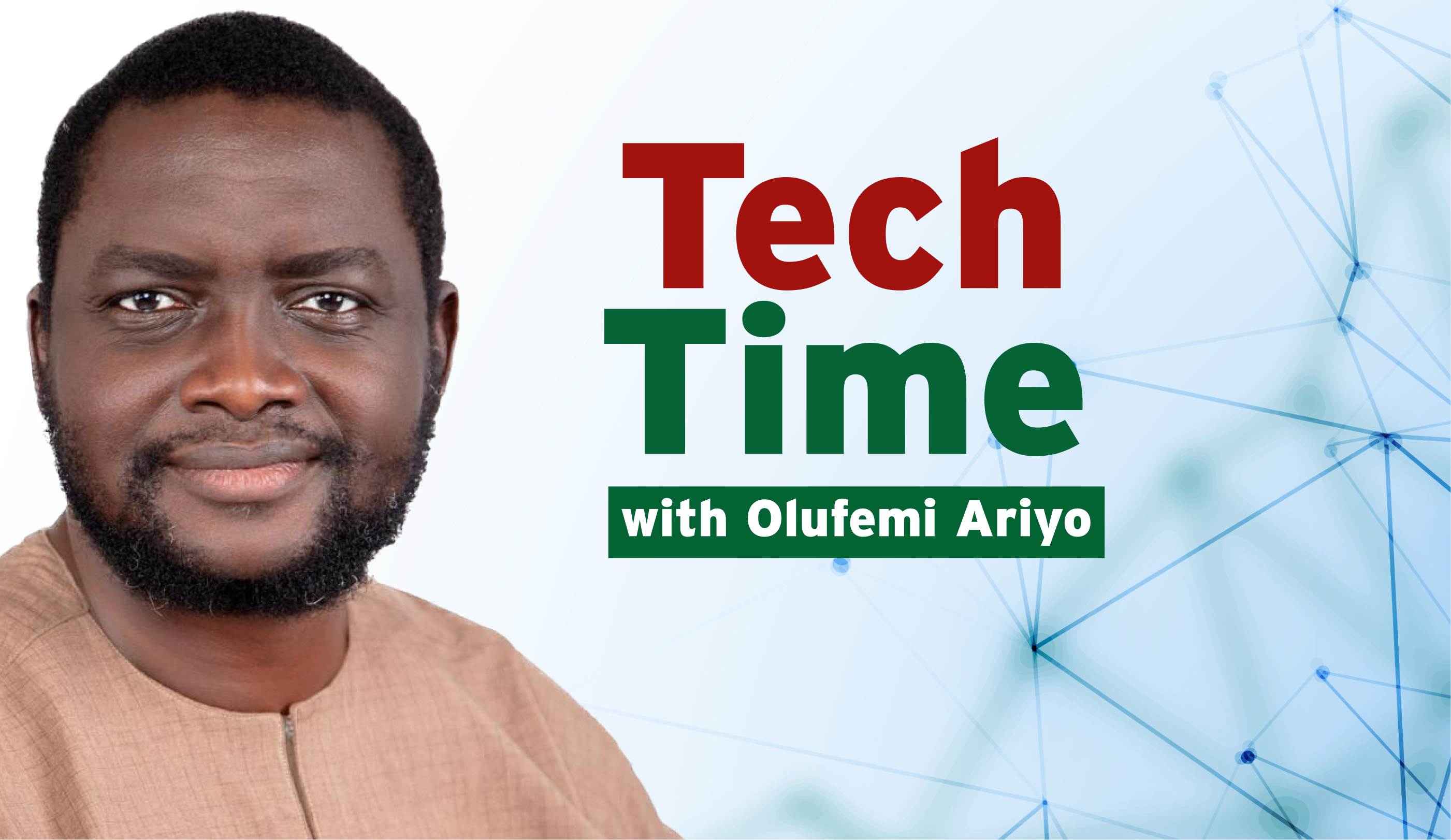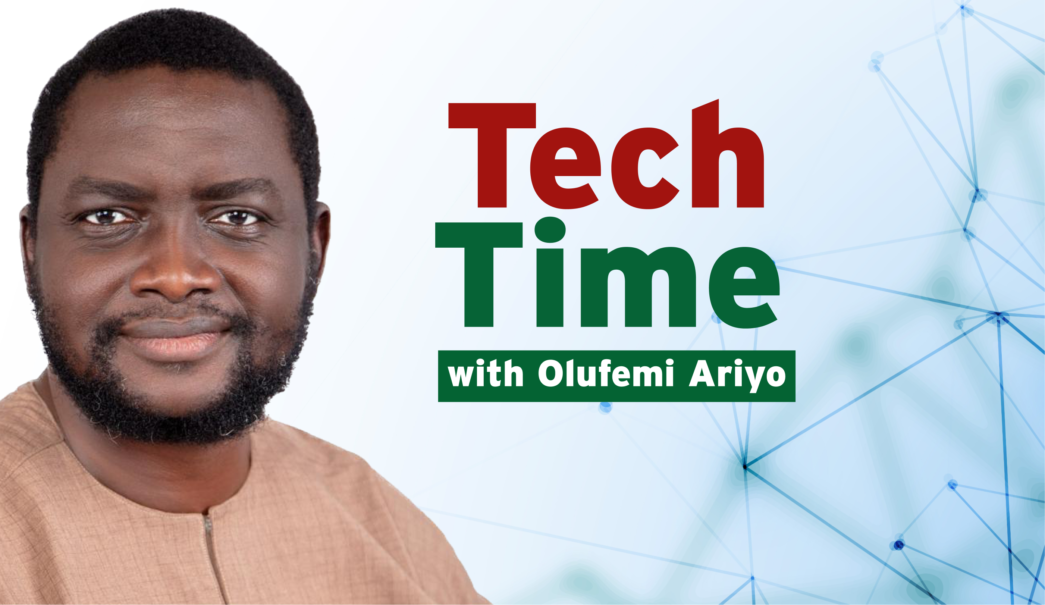In the 21st century, the illiterate will not be those who cannot read and write, but those who cannot learn, unlearn, and relearn says Alvin Toffler. What if I told you the digital era no longer recognises a limitation from a lack of information, but by how effectively we use it. For millions of young Nigerians and Africans, this is not a challenge, it is a golden opportunity. You do not need to sit in an Ivy League lecture hall or earn a prestigious degree to access the same quality of knowledge once reserved for a privileged few. The gatekeepers are gone. What remains is your willingness to learn, your ability to adapt, and your readiness to use technology as your springboard.
We live in a moment where YouTube can teach you software engineering or sustainable farming; Artificial Intelligence can tailor a learning path made just for you; And a smartphone can connect you to global mentors, bootcamps, and business opportunities – from Lagos to Nairobi to Silicon Valley. Now, this is not just convenience, it is power. Yes, the power to rewrite your own story, shape your community, and participate in building Africa’s digital and economic future. This article is your call to action as we reconsider how to strategically use technology to acquire, refine, and apply knowledge—not just for personal advancement, but for collective transformation. Because in this century, smart is not who you are, but how you learn. And the tools are already in your hands.
1. Acquire Knowledge Using Technology
Technology has made learning more accessible than ever before. You don’t need to be in a classroom or pay for expensive courses to get valuable knowledge. With just your smartphone or laptop, you can learn anything—from coding to business skills—anytime, anywhere. Whether you’re looking to start a career, explore a new interest, or improve yourself, technology can help you get there. Here’s how you can use digital tools to make learning easier, faster, and more effective.
Advertisement
2. Set Learning Goals—And Use the Right Tools to Get There
The first step toward personal growth is clarity—deciding on a skill you want to master over the next few months. Once you set a goal, technology can help you achieve it more efficiently and affordably than ever before. For instance, if you aspire to become a data analyst, you can take advantage of free or low-cost programs on platforms like Coursera, Google Career Certificates, DataCamp, or Microsoft Learn. These courses often include hands-on projects and certifications that are recognized by employers worldwide, making your learning journey both practical and marketable.
If your interests lie in agribusiness, fashion design, or entrepreneurship, YouTube is a goldmine of valuable content. Channels like Farm Channel Africa, Techpoint Africa, or BellaNaija Style offer niche insights relevant to African industries and trends. You can also follow thought leaders and professionals on platforms like LinkedIn or X (formerly Twitter) to stay up-to-date with the latest in your field.
Advertisement
To keep yourself organized and on track, use tools like Notion, Trello, or Obsidian to create your own personal learning dashboard. These apps help you set clear goals, track your progress, and reflect on what you’ve learned weekly. After all, a goal without a system is just a wish—and these digital tools provide the system to help you achieve your learning objectives.
3. Turn Your Smartphone into a University
Your smartphone is more than just a device for entertainment—it is a powerful learning tool at your fingertips. With the right mindset, you can transform it into a portable university. For example, apps like Spotify, Apple Podcasts, and Google Podcasts host a variety of high-value shows such as The Knowledge Project, She Leads Africa, AfroTech, and African Tech Roundup, all of which are packed with insights from top innovators, entrepreneurs, and business leaders. By tuning into these podcasts, you can stay informed about the latest trends and strategies in business, technology, and personal growth.
When it comes to reading, your smartphone has you covered. Apps like Kindle, Scribd, and Pocket offer access to thousands of books, articles, and reports, allowing you to build your own digital library wherever you are. If you don’t have the time to read, no problem—tools like Speechify, TTSReader, and NaturalReader can turn text into audio, so you can listen to articles or books while commuting, exercising, or doing household chores. This means you can keep learning, no matter how busy your day gets.
Advertisement
A simple tip to stay consistent with learning is to carve out a “Learning Hour” every day. Whether it is in the morning, during lunch, or before bed, dedicating just 30 minutes daily can add up to 180+ hours of learning each year. Now, that is over seven full days of knowledge accumulation, simply by making small, intentional time blocks for your growth.
4. Learn from AI-Powered Tutors
AI has the potential to be your personal learning assistant—always available, never fatigued, and capable of breaking down complex topics into simple, digestible explanations. For example, Khan Academy’s Khanmigo is an AI-powered tutor that helps you work through subjects like math, science, and coding at your own pace, guiding you step-by-step through challenging concepts. If you’re struggling with a specific math problem or science question, Google’s Socratic app allows you to snap a photo and instantly receive detailed explanations, helping you tackle difficult topics on the spot.
Another innovative tool is Quora’s Poe AI, where you can ask questions on a variety of subjects, from history to Python programming, and receive answers from different AI tutors, such as Claude, GPT, or Dragonfly. This level of instant access to knowledge makes learning as simple as asking a question on your phone.
Advertisement
The beauty of AI-powered learning tools is that they don’t replace your brain—they enhance it. With these technologies, anyone with a smartphone and a curious mind can learn at a level comparable to the best classrooms, anytime and anywhere. AI opens up a world of education that is both personalized and infinitely accessible.
Bonus: Go Beyond—Connect What You Learn with Your Goals
Advertisement
Learning is not just about accumulating information; it’s about making connections that matter. As you dive into new subjects, always ask yourself how you can apply this knowledge to your personal or professional life. For instance, if you’re learning about data analysis, think about how this skill could benefit your job, whether you’re in business, agriculture, or even the creative sector. Can you use this knowledge to solve a problem at work or start your own project? Maybe you can use insights gained from a course on sustainable farming practices to help improve local farming techniques in your community.
The key to making learning stick is to tie it to real-world impact. When you can connect what you’re learning with tangible goals—whether it’s enhancing your career, building your business, or collaborating with others—the learning becomes purposeful and unforgettable. Ask yourself who you can share your knowledge with. Teaching others not only reinforces your own understanding but helps spread valuable information within your network, creating a ripple effect of growth and improvement. When learning has a purpose beyond just acquiring facts, it becomes a powerful tool for change.
Advertisement
1. Refine and Deepen Your Knowledge
Refining and deepening your knowledge is just as important as acquiring it in the first place. It is about taking what you have learned, testing it in real-world situations, and continuously improving your understanding. By actively reflecting on what you know and staying open to new information, you can sharpen your skills and stay ahead in our world today. Here are some tips on how you can elevate your knowledge and turn it into true expertise.
Advertisement
2. Revisit and Rethink—With Smart Tools
Revisiting and rethinking what you have learned is a crucial step in refining your knowledge. Simply learning something once is not enough to truly master it—reinforcement is key. With the help of smart tools, you can turn this process into a more structured and efficient practice. AI-powered note-takers like Otter.ai or Notion AI can assist by making a summary of your notes, creating quizzes, and even identifying areas where you might have gaps in understanding. For example, after a lecture or reading session, Otter.ai can transcribe and summarise key points, making it easier to review later. Notion AI, on the other hand, can help you organise those notes into coherent categories and even generate follow-up questions based on the content, helping you reflect more deeply on what you have learned.
To ensure long-term retention, it is essential to consistently review and test your knowledge, which is where tools like Anki or RemNote come in. These spaced repetition tools help you schedule regular review sessions based on how well you have retained certain information, optimising your learning process. For instance, if you are studying a new language, Anki will show you flashcards for words you have not fully mastered, while pushing back review of words you have already learned well. This system helps you maintain knowledge over time and ensures that you are always building on a solid foundation. By revisiting and rethinking your learning with these smart tools, you strengthen your grasp on concepts while also cultivating a deeper, more efficient understanding that can be applied to real-world challenges.
3. Get Feedback—Fast
Getting fast, meaningful feedback is one of the most powerful ways to sharpen your knowledge and correct misconceptions before they become habits. Today, technology makes it easier than ever to get feedback without waiting for a formal assessment or a classroom setting. A simple but effective method is using AI tools like ChatGPT. You can ask ChatGPT to quiz you on any topic—whether it is the basics of data science, the principles of marketing, or the steps of agricultural processing. For instance, if you have just completed a course on supply chain management, you can ask ChatGPT to simulate an interview, pose scenario-based questions, or challenge your understanding of key concepts. This helps you reinforce what you have learned and builds confidence in applying it in real-world settings.
Beyond AI, engaging with online communities is another invaluable way to get feedback and learn from others’ experiences. Platforms like Reddit’s r/learnprogramming or Stack Overflow are excellent for troubleshooting coding challenges, while Africa-specific communities like TechCabal, Zindi, or AltSchool Africa’s Discord server offer vibrant spaces to ask questions, share resources, and get insights from peers who understand the local context. For example, if you are building an Agritech app or experimenting with machine learning, Zindi’s data science competitions can give you direct feedback on your models from a real-world problem-solving perspective. Feedback in these forums is often immediate, peer-reviewed, and practical—making your learning go beyond theory to deeper applications that are relevant to your goals.
4. Gamify Your Learning
Gamified learning is a very effective way to stay motivated and consistent—especially when tackling difficult subjects. Instead of approaching learning as a chore, gamified apps turn it into an experience filled with rewards, levels, streaks, and milestones. For example, Quizizz turns academic learning into a game-like experience where you can compete with friends or learners around the world. Whether you are brushing up on business concepts, preparing for a certification exam, or studying agricultural science, the platform allows you to create custom quizzes or choose from thousands of ready-made ones. Points, leaderboards, and instant feedback keep you engaged and push you to improve. For a young entrepreneur in Lagos learning financial literacy, or a student in Ethiopia preparing for tech bootcamps, Quizizz helps make the journey less intimidating and a lot more interactive.
If you are interested in STEM fields, Brilliant is a powerful tool that teaches math, logic, and science through interactive problem-solving. Rather than memorising formulas, you learn by doing—solving puzzles and real-world problems step by step. This is especially useful for young Africans preparing for careers in engineering, AI, or finance. Meanwhile, aspiring programmers can benefit from platforms like CodeCombat, where you learn coding (Python or JavaScript) by completing quests and building your own game. These apps make learning more enjoyable while helping you form consistent study habits, turning 15–30 minutes a day into measurable progress. Gamification is more than fun—it builds discipline, reinforces concepts, and keeps you coming back.
1. Apply Your Knowledge in the Real World
Learning really sticks when you use it. Whether you are running a small business, volunteering in your community, or just solving everyday problems, applying what you have learned turns information into real-world skill. It is how you move from “knowing” to growing.
2. Start Micro-Projects
You do not need a big break or perfect timing to put your knowledge into action—just start small. Handling micro-project is a great way to practice what you have learned and gain real-world experience without high risk. For instance, if you have been learning about personal finance or spreadsheets, build a simple budget tracker in Excel or Google Sheets to manage your monthly expenses or track spending for a family member. If you are exploring entrepreneurship, use ChatGPT to draft a business plan for a side hustle like poultry farming, fashion design, or a mobile food stand. Want to pitch your agro-business idea to a potential investor or grant body? Use Canva to design a clean, compelling pitch deck that outlines your value proposition, cost structure, and market opportunity. Each of these small wins builds practical skills and boosts your confidence to take on bigger challenges down the line. Never forget to make friends along the way to support your goal-drive.
3. Solve Local Problems with Global Tools
If you want to make a real impact, look around you—chances are your community is full of everyday problems waiting for smart solutions. And the best part? You do not need millions in funding or a tech degree to start. You just need the right digital tools and a bit of creativity. For example, if you’re passionate about improving access to healthcare in rural communities, you can use tools like Ubenwa, an AI-powered app that analyzes a baby’s cry to detect signs of birth asphyxia early. By collaborating with local clinics or health workers, you can help introduce low-cost, tech-enabled diagnostics that save lives. Similarly, apps like mPharma help track the availability and pricing of essential medicines—something you could advocate for or help implement in your local pharmacy network.
Indeed, these types of innovations show how technology built globally can be adapted locally to solve real, urgent problems—no massive funding required, just purpose and digital know-how. If you’re passionate about education, you could help local teachers access free online lesson plans or create a chatbot with a tool like Dialogflow to answer students’ questions after school hours. Want to support local artisans? Use Google Maps and Google My Business to help them gain visibility and reach more customers online. Whether it is using open data for urban planning ideas or AI to build tools in local languages, these global platforms give young people the power to solve deeply local problems—with relevance and reach.
4. Create, Don’t Just Consume
Do not stop at learning—turn your knowledge into something visible and valuable. I meet young people who stop at when they are issued a certificate for their trainings to start looking for a job. Creating content is a super powerful way to reinforce what you have learned and position yourself as a resource to others. For instance, if you have just completed a design course, you can start uploading your work to Behance or Dribbble to showcase your portfolio. If you are learning software development, platforms like GitHub let you share your code, track your progress, and even collaborate with others on open-source projects. Prefer writing? Use Medium or Substack to share insights from books you have read or explain tech concepts in plain language.
However, if you are more comfortable speaking than writing, then create a TikTok or Instagram Reel teaching a business skill, explaining tech trends, or demonstrating how to use tools like Canva or ChatGPT. Or go offline: organize short trainings in your church, youth centre, or school, even if it is just a 20-minute session on digital tools or budgeting basics. Teaching others help to deepen your understanding—it builds your confidence, grows your influence, and creates a ripple effect of knowledge in your community.
Conclusion: Africa’s Future Is Digital—And So Is Your Power
Nelson Mandela said, “Education is the most powerful weapon which you can use to change the world.” This quote has never been more true or more urgent. Africa’s future is digital, and so is your power. As a young African, you stand at the intersection of knowledge, technology, and opportunity. With nothing more than a smartphone with internet and a strong sense of purpose, you can access the same information as a student at MIT, connect with mentors across the globe, and build solutions that solve problems in your own backyard.
But remember, access alone does not guarantee transformation. The real shift happens when you take ownership of your learning. Set goals that stretch you. Use AI, apps, and smart platforms to tailor your learning journey. Turn your phone from a distraction into a launchpad. And most importantly, apply what you learn through micro-projects, content creation, or by solving problems in your community. This should not be about waiting for the perfect opportunity or certificate. It is about turning knowledge into action and action into impact. Whether you are learning to code, mastering Agritech tools, designing on Canva, or teaching others how to use ChatGPT – every step you take builds the future, not just for yourself, but for Africa as a whole.
So let this be your mindset: don’t just learn to pass a test—learn to shape your world. Stay curious. Stay bold. Keep building. Because Africa does not just need more graduates. It needs solution makers. Lifelong learners. And tech-powered change-makers ready to lead the next generation forward.
Thank you for the investment in time and attention. I am open to collaborating on better ways to locally improve and harness the potentials of tech across the continent. To be alerted each time I create a new post, follow my Medium: https://medium.com/@roariyo and LinkedIn: https://www.linkedin.com/in/olufemiariyo/ or send an email to [email protected]











